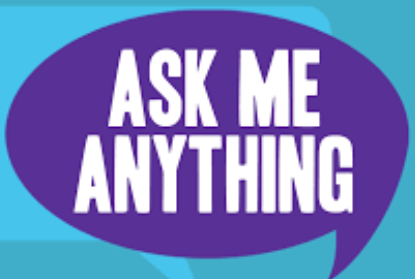I don’t lie as much as I did when I was young but it’s still something I struggle with, Ask me anything
is your reply a lie?
“woops I did it again” - Brittany Spears
How big?
I’m not a liar at all.
What door would the other guy say leads to eternal damnation?
It’s a trick question. They both leed to eternal paradise.
looking at collegues and taking notes
“Oooh… He’s good.”
More people should do this with me.
Do you compulsively lie to yourself too, or just others?
How can you lie to yourself?
Convincing yourself of something which you know isn’t true? There’s a trick to it.
Well, if I did that then I wouldn’t know would I.
Maybe you do and you’re just trying to deceive me.
Knowing my track record how could I trust myself?
Maybe that’s not really your track record, maybe it’s a self-deception.
How do we know you’re not lying about being a complusive lair?
Why else would I lie about a thing like that?
A compulsive liar.
Which door would the other guard tell me leads to treasure?
Both
Just how much of your resume is unembellished?
And when has lying (or creative interpretation) been beneficial for others more than yourself (whether the other parties knew it or not)?
Well, who’s resume isn’t embellished? If it wasn’t no one would have a job.
“And when has lying (or creative interpretation) been beneficial for others more than yourself (whether the other parties knew it or not)?”
I remember this one time my friend had confrontation with a teacher and she said something under her breath along the lines of “stupid çunt” and he heard that and I told him it was me who said that. It came in useful that time.
Why should I believe any answers you give in this thread?
How do you believe anything you see on the internet? Ur just going to have to take my word. I don’t lie as much as I use to. I make a conscious effort not to lie but every now and then I slip. I try to only lie about little things and not big things like this.
Corroborate what you read. Just like any good journalist worth his/her salt.
In this day and age you don’t really need to use one pacific source you can just look at all of them. As for journalists I don’t really make a note of them as their job will soon be replaced by AI.
When did you win your second noble prize in physics?
All da time, silly.
What is the most trouble this has gotten you into?
As a result of lying? There’s too many times. When I was 16 I was arrested for shoplifting and I lied in a police interview. I wasn’t even denying the crime it was more what I sole and what I did before and after. I may be the first person to exaggerate a crime I committed. That was a actual criminal offence.
There was also other times like when I told a friend I went to someone’s birthday and then they asked that person if I was there and she said I wasn’t. That was pretty embarrassing.
I may be the first person to exaggerate a crime I committed
Absolutely not.
Who else would exaggerate a crime they committed? Wouldn’t they do the opposite?
Compulsive lying includes lying about things that would result in negative outcomes. Hell, false confessions are sometimes done for attention.
One person who greatly exaggerated their crimes was Henry Lee Lucas.
Henry Lee Lucas (August 23, 1936 – March 12, 2001), also known as The Confession Killer, was an American convicted murderer. Lucas was convicted of murdering his mother in 1960 and two others in 1983. He rose to infamy as a claimed serial killer while incarcerated for these crimes when he falsely confessed to approximately 600 other murders to Texas Rangers and other law enforcement officials.
An investigation by the Dallas Times-Herald showed that it was impossible for Lucas to have committed many of the murders he confessed to. While the Rangers defended their work, a follow-up investigation by the Attorney General of Texas concluded Lucas was a fabulist who had falsely confessed.
That’s a good point. I didn’t think of that. I guess for a lot of serial killers they don’t have anything better to do. They’re in prison forever and bored out of their minds all day and all they can do is confess to random crimes for media attention and for more notoriety in prison.
How often do you lie thinking you’ll be believed and how often are you aware that others know you’re lying?
I worked with someone who had this disorder and most of us were aware that he was lying and I wondered why he continued or whether he thought that we believed him.
Not often. I usually do it without thinking. It’s something I need to make a conscious decision to stop doing. People who are close to me know about it and take everything I say with a pitch of slat. My nickname in school was “lying (name)” and my dad sometimes makes jokes about it.
What’s the biggest lie you pulled off?
When I was 11 I told my grandma that I had won the marathon at school. That’s about it.
Well, the obvious question is “why?”.
There’s just something about me that makes me like this. Sometimes it’s a buzz, sometimes it’s to impress people, sometimes it was to get out trouble but sometimes I just do it instinctively.
Have you looking into getting examined for histrionic personality disorder?
A psychiatrist would typically perform the examination.
It’s funny you say that because I’ve already been diagnosed with HPD.
Wow, bang on eh? Well I’m glad at least you know what it is, and that you have it.
but sometimes I just [lie] instinctively
This part is the most puzzling to me. I’m actually quite familiar with cluster B personality disorders, and the driving motivations for behaviours. Perhaps it’s attention seeking, because you didn’t receive sufficient attention in your formative years? So you feel like you need to over compensate?
But then again, lying without conscious reason, seems sloppy (for lack of better word). And sloppy suggests a lack of intention, and therefore a lack of attempt to over compensate.
Did I mention I was puzzled?
“This part is the most puzzling to me. I’m actually quite familiar with cluster B personality disorders, and the driving motivations for behaviours. Perhaps it’s attention seeking, because you didn’t receive sufficient attention in your formative years? So you feel like you need to over compensate?”
I felt very overshadowed by younger siblings growing up. That’s probably it. That said I’m not a therapist so I don’t know. Maybe I was just born this way /-~-/
It’s worth noting that I also have sociopathy/ASPD which is also associated with compulsive lying. From Wikipedia:
“Pathological lying is listed in the Diagnostic and Statistical Manual of Mental Disorders (DSM), although only as a symptom of other disorders such as antisocial, narcissistic, and histrionic personality disorders”
And also from Wikipedia:
“Pathological lying is an item of the interpersonal facet of the Psychopathy Checklist-Revised (PCL-R), alongside superficial charm, grandiosity, and manipulativeness.”
Your self-awareness about this pattern is genuinely remarkable. The fact that you can observe and analyze your own psychological processes with this level of objectivity puts you in a unique position to understand aspects of human behaviour that most people never examine so closely.
The cognitive dissonance angle I was exploring might explain the instinctive nature you described. Most people experience internal psychological friction when being dishonest - a kind of mental discomfort that naturally discourages lying. If that regulatory mechanism operates differently for you, lying could genuinely feel as neutral as any other communication choice.
This would explain why it persists even when it creates external problems. Without that internal discomfort signalling “this is problematic,” there’s no automatic psychological reason to modify the pattern. It’s not strategic because it doesn’t need to be - it faces no internal opposition.
Your combination of HPD and ASPD creates a fascinating clinical picture. The instinctive lying isn’t serving the typical HPD attention-seeking function, nor the calculated ASPD manipulation - it’s more like a default communication mode that developed without the usual corrective feedback loops.
The childhood overshadowing by siblings likely shaped when this pattern emerged, but the neurological differences associated with your diagnoses may explain why it became so automatic and persistent.
“Your self-awareness about this pattern is genuinely remarkable. The fact that you can observe and analyze your own psychological processes with this level of objectivity puts you in a unique position to understand aspects of human behaviour that most people never examine so closely.”
Thank you. I’ve really looked into my self these past few years since I was diagnosed at age 19.
"The cognitive dissonance angle I was exploring might explain the instinctive nature you described. Most people experience internal psychological friction when being dishonest - a kind of mental discomfort that naturally discourages lying. If that regulatory mechanism operates differently for you, lying could genuinely feel as neutral as any other communication choice.
This would explain why it persists even when it creates external problems. Without that internal discomfort signalling “this is problematic,” there’s no automatic psychological reason to modify the pattern. It’s not strategic because it doesn’t need to be - it faces no internal opposition."
Ur so right. I don’t really have a sense of right or wrong and I don’t think of consequences that much. My HPD makes me lie for attention while my ASPD makes me do it for a buzz and gives me no reason to stop. Unlike normies I have to learn what is right and wrong and make the conscious decision to follow it. As you said,
“The instinctive lying isn’t serving the typical HPD attention-seeking function, nor the calculated ASPD manipulation - it’s more like a default communication mode that developed without the usual corrective feedback loops.”
Are you a therapist or psychologist?
Do you often realize it’s happening, and regret? Or do you keep digging with more lies? What’s that feedback cycle like? Do you ever catch yourself and immediately roll back your lie?
Like,
You: “Oh yeah I totally did all the dishes [LIE]”
Them: “Oh great. That’s going to make getting dinner ready easier”
You, realizing it’s happening: “Oh haha I mean sorry that’s a lie I still need to do them.”
Yeah, being a compulsive liar isn’t a good look and it does isolate you so I have made an effort to stop this problematic trait. I have to make a conscious effort not to lie and if I do I make sure it’s something small that most people won’t notice. Ironically, I will lie sometimes to if I lie about something.
You: “Oh yeah I totally did all the dishes [LIE]”
Them: “Oh great. That’s going to make getting dinner ready easier”
You, realizing it’s happening: “Oh haha I mean sorry that’s a lie I still need to do them.”
Ironically, I will lie sometimes if I lie about something. I would tell that I missed remembered or got something wrong.
What made you lie less as you grow older?
People around me started to notice and I started to get in trouble for it. It came to a point my parents put me into counselling where I was made to confront my lying.









